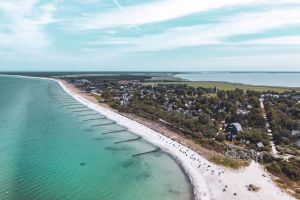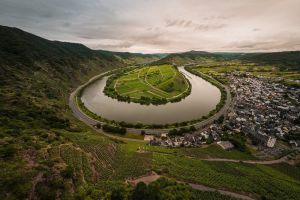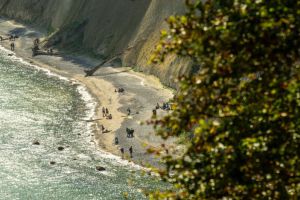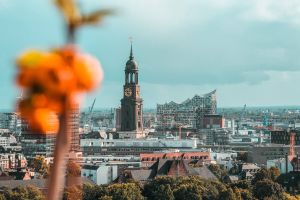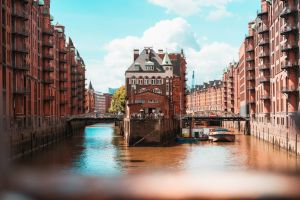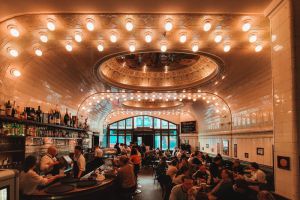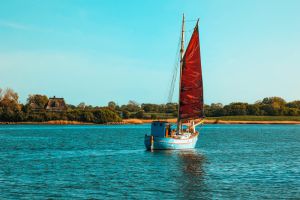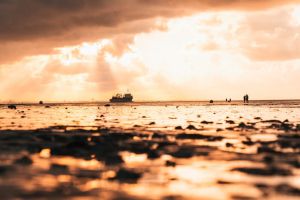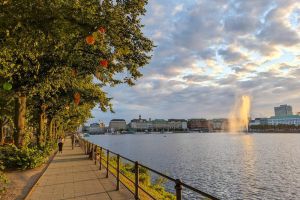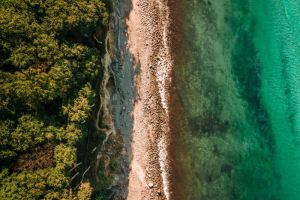You feel the warmth of every single grain of sand tingling on your feet. A stiff sea breeze blows in your face. Your hair is already salty. Waves crash, seagulls fly overhead and you gaze into the distance, where the setting sun is just about to crash into the horizon and merge into a golden-red entity.
Sounds good?
Then this article about a spectacular road trip adventure in Germany by the sea is just right for you. I’ll show you a Baltic Sea itinerary that takes you from Schwerin via Rügen to Usedom, always along the coast of Mecklenburg-Vorpommern, past many of the most beautiful and famous Baltic Sea sights.
I have left out the big cities along the way, such as Lübeck, Rostock and Stralsund. That doesn’t mean that they aren’t also worth seeing. But for this trip, I would rather recommend less well-known and smaller places where you can relax without tripping over the dog leads of 1,000 other tourists.
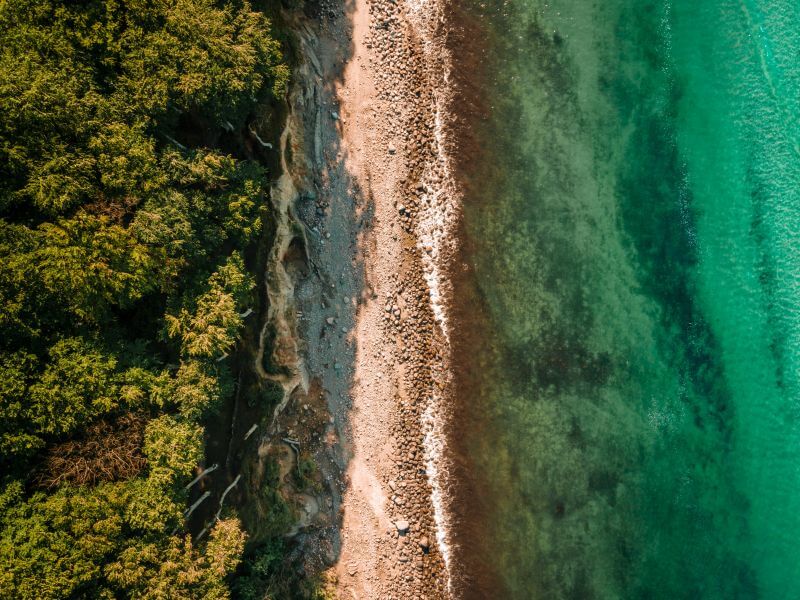
Every single one of the places in this article would be worth spending an entire holiday there
But since this is a 2-week road trip, you will be able to visit many of these places to get a first impression. Perhaps you’ll find a very special place of longing among the sights along this Baltic Sea itinerary that you’d like to return to later. Then maybe even longer.
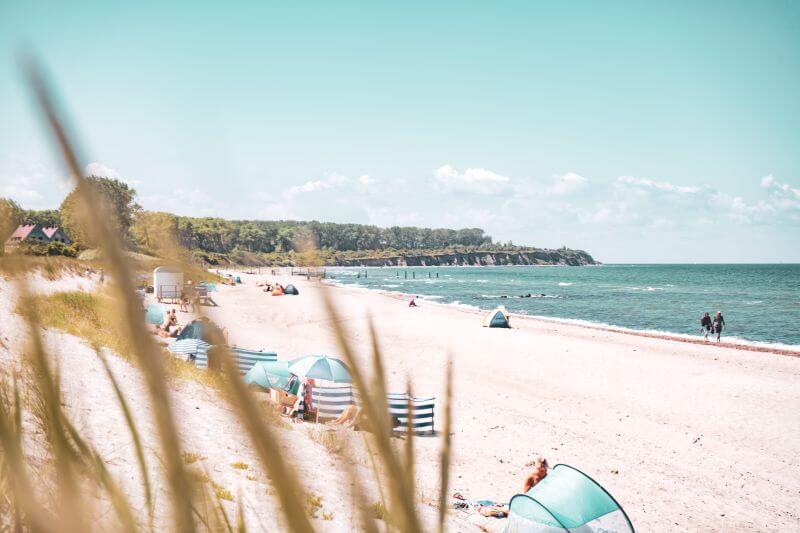
This Baltic Sea itinerary takes you along:
Schwerin – Wismar – Poel Island – Rerik – Kühlungsborn – Heiligendamm – Bad Doberan – Graal-Müritz – Fischland/Darß/Zingst – Rügen Island – Greifswald – Usedom Island
Baltic Sea itinerary Video
In the following video you will also get a few visual impressions of how beautiful the Baltic Sea in Germany can be:
How long to stay at the Baltic Sea?
In total, I recommend 2 weeks for this Baltic Sea itinerary. You could spend 1 week on RĂĽgen alone. I have even written an extra article about this:
But if you only have two weeks, you need to think about how long you’re going to stay everywhere beforehand.
Best time to visit the Baltic Sea
The best time to travel on this Baltic Sea itinerary is definitely the summer from May to September, when it’s nice and warm and you have plenty of hours of sunshine during the day. The Baltic Sea is of course also beautiful in winter. But then I would travel to one place for a shorter period of time rather than planning a longer road trip.
Try to pay attention to the summer holiday periods when planning your trip. It is best to travel outside the summer holidays or at times when as few federal states as possible have summer holidays at the same time. Otherwise it could get pretty crowded at one or other of the seaside resorts.
Sights along the Baltic Sea itinerary
In the entire two weeks of this Baltic Sea route, you will pass these fantastic Baltic Sea sights and natural highlights:
- The Schwerin Castle
- the steep coast of the island of Poel
- the Stoeve windmill
- the graves of Rerik
- the natural beach at Riedensee
- the Nienhagen ghost forest (Gespensterwald)
- the oldest seaside resort in Germany
- the Bad Doberan Minster
- the Rododendron Park Graal-MĂĽritz
- the most beautiful beach in Germany on the Fischland-DarĂź-Zingst peninsula
- the white cliffs in the Jasmund National Park on RĂĽgen
- The longest pier in Germany
- the pompous villas of spa architecture in Heringsdorf
From a few of these Baltic Sea sights, I couldn’t even believe that such places even exist in Germany.
Accommodations along the Baltic Sea itinerary
In the article, I also recommend accommodation options along this Baltic Sea route. These include hotels and campsites – depending on how important comfort is to you on your trip and how big your budget is. There are plenty of both along the coast. You can also find holiday flats in a lot of places.
However, I think that a mixture of different types of accommodation on a trip like this is also exciting. For example, I spent one night in the luxurious The Grand in Ahrenshoop and the following night in a tent with a holey air mattress between the dunes on the beach. Both were completely different, also in terms of price, but that’s what brought excitement and variety to my road trip.
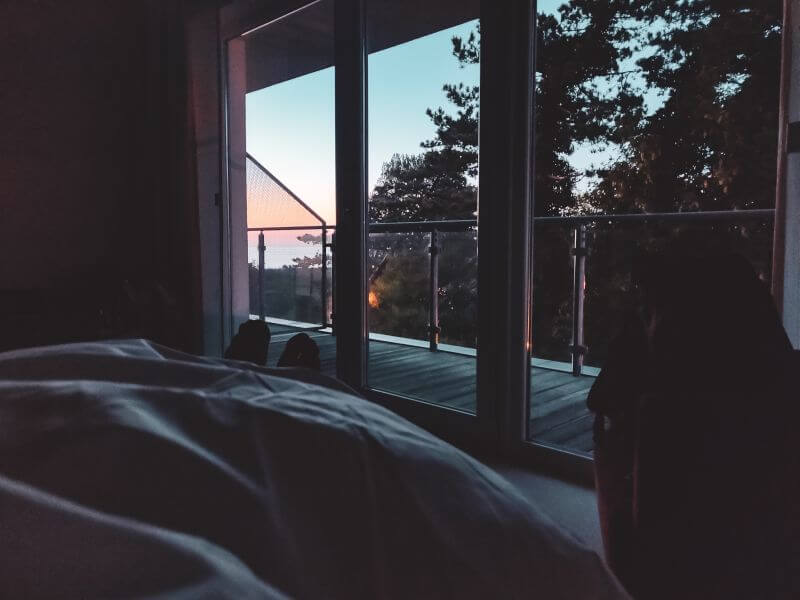
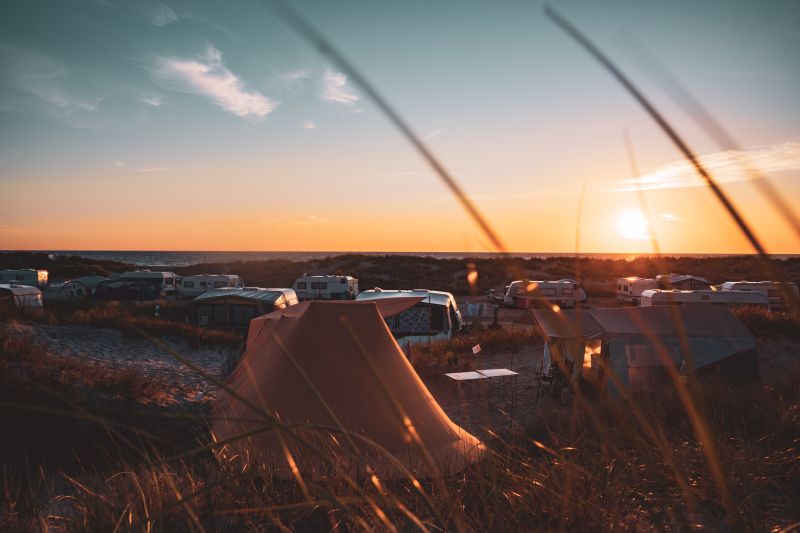
Note: In most places along the Baltic Sea you have to pay a visitor’s tax. This varies in price but is usually between €1 – €3 per day. The tourist tax is charged at the hotel but there are also vending machines, often on the beaches, where you can pay the tourist tax. This is also checked from time to time and you must then show a corresponding receipt.
Baltic Sea itinerary – The individual sights
You can also find the Baltic Sea sights along this route here on the map:
Lake Schwerin
The first stop and starting point of this road trip is Lake Schwerin. Although it is not directly on the Baltic Sea, the Schwerin Castle alone is worth a visit. It is located on an island in the centre of Schwerin and is surrounded by a fantastic castle park.
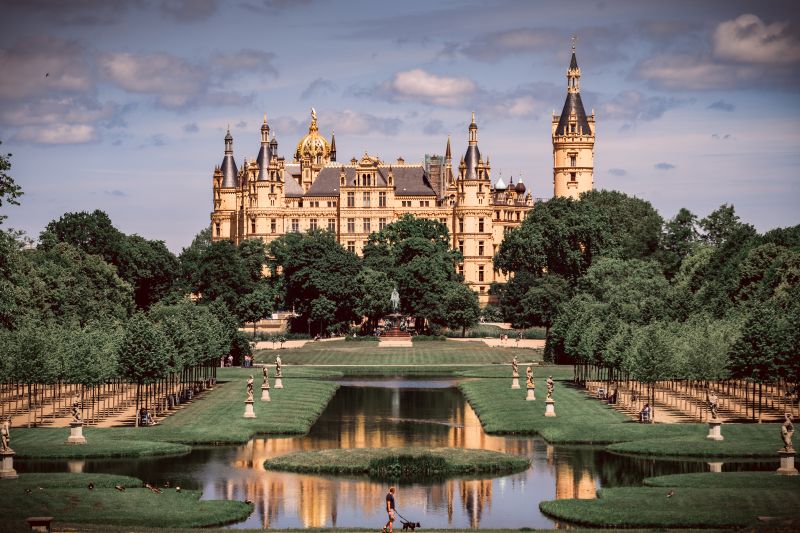
A little further north of Schwerin lies Schloss Wiligrad – an idyllic place right on the shores of Lake Schwerin. Take a walk through the neighbouring park, through the wonderfully tranquil forest and along the lakeshore.
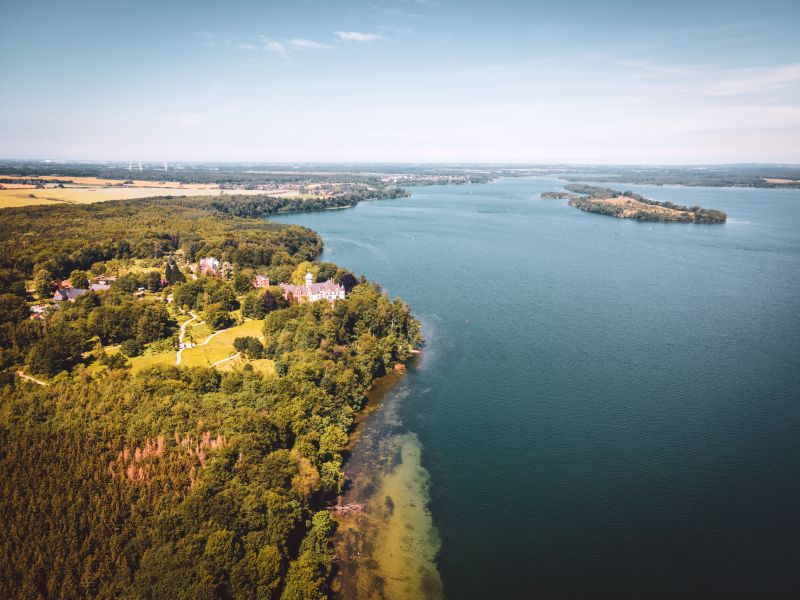
Wismar
The next stop on your Baltic Sea trip is the Hanseatic city of Wismar. You should at least make a stopover here. Visit the square market square with its restored gabled houses, which is one of the largest in Germany. Or walk through the alleyways of the old town and explore the many brick churches.
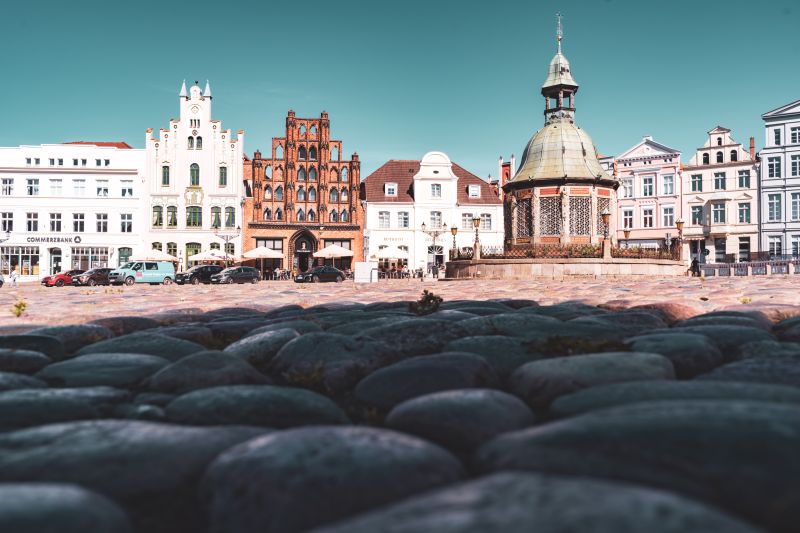
Poel Island
From Wismar, a 20-minute car journey takes you to the small island of Poel.
Poel is a fantastic, but above all a not so crowded place on the Baltic Sea. And there are some great spots for sunsets. I can particularly recommend the cliffs in the west. You have to drive to the Hinterwangern car park and walk along the path behind the forest for about 10 minutes. There are several access points to the beach here.
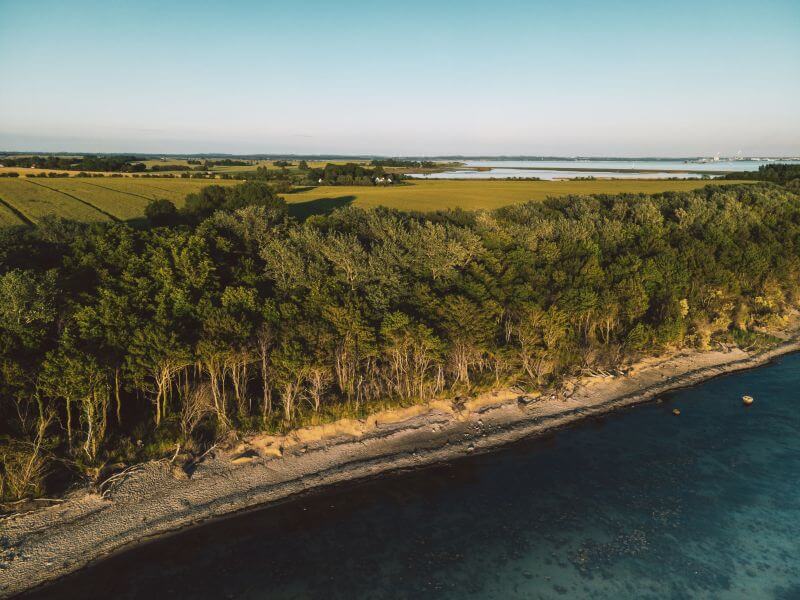
Timmendorfer Strand is also very beautiful – It’s not the huge beach in Schleswig-Holstein with the same name, but the small, tranquil one in the north of Poel. Here you can stroll along the marina in the evening until sunset and chill out in one of the beach chairs during the day.
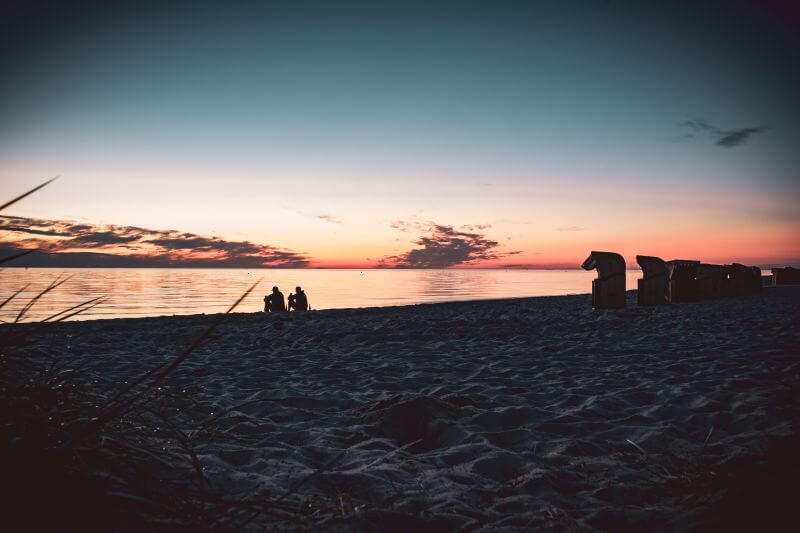
It’s best to look for accommodation on Poel so that you can spend a little more time on the island. There are many flats and holiday homes here. Here you will find the best accommodation on Poel.
I personally stayed at the centrally located Hotel Seemöwe and can highly recommend it. It is the perfect base for exploring the rest of Poel. The hotel is also just a few minutes’ walk from the marina in Kirchdorf. Tip: It’s best to book the delicious breakfast buffet as well.
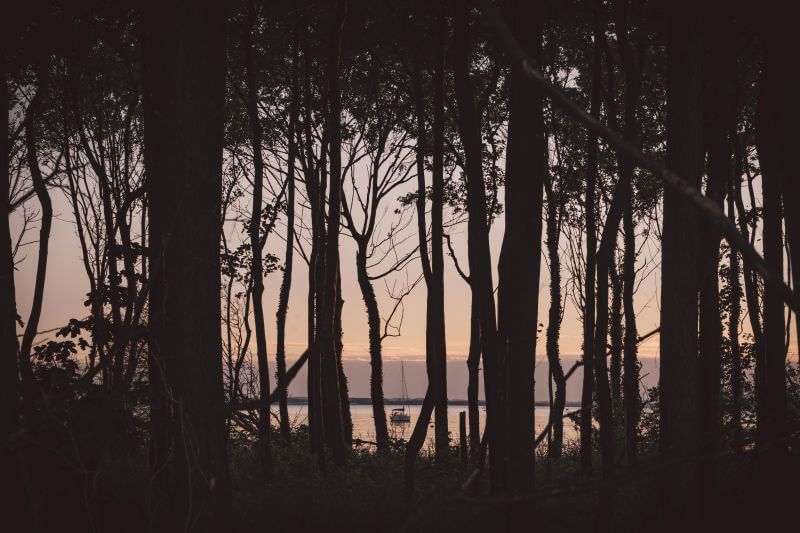
KĂĽhlungsborn
Kühlungsborn is very popular with many Baltic Sea tourists and there are certainly many reasons to spend your holiday here. However, I found it a little too crowded for my taste. Nevertheless, it’s worth a detour. At least take a walk along the promenade and onto the pier.
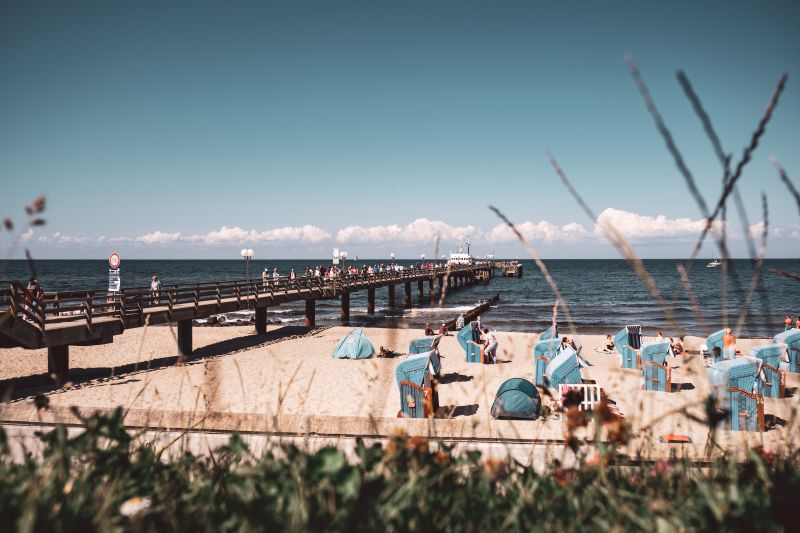
A less crowded place to swim is the natural beach at Riedensee. Here you are sure to find a quiet spot where you can spread out your towel. However, swimming here is not necessarily suitable for families with small children. To get into the water, you first have to fight your way over a slippery layer of stones. But once you have overcome this, nothing stands in the way of a relaxing swim.
A little outside KĂĽhlungsborn, in Bastorf, is the highest lighthouse in Germany. However, this is not due to its height, but to the fact that it stands on a 79 metre high hill. From there, you have a great view over the entire coastline.
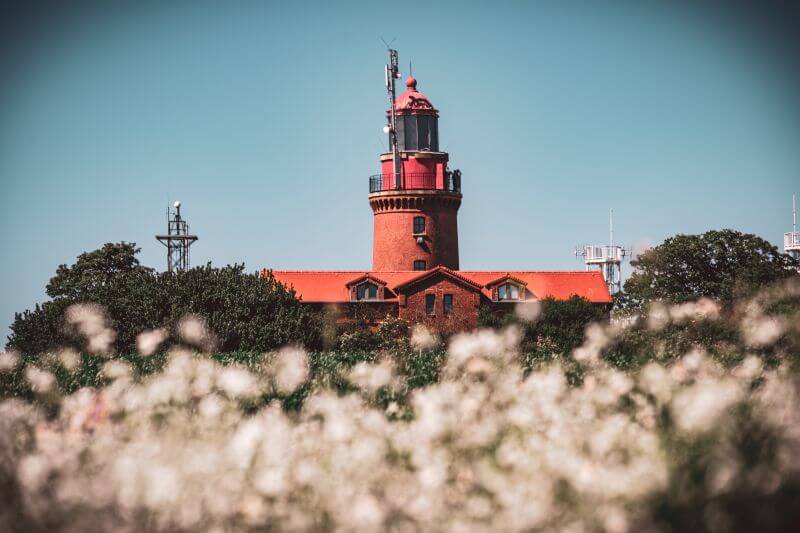
On the way from Poel to Kühlungsborn, you should also stop at the Stove windmill and the megalithic tombs near Rerik. Both places are not quite as well known, but that’s why you won’t meet many other tourists there.
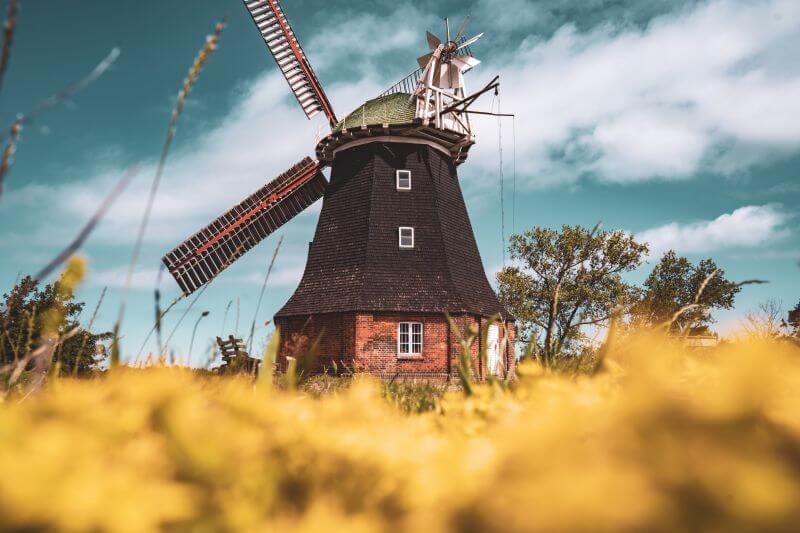
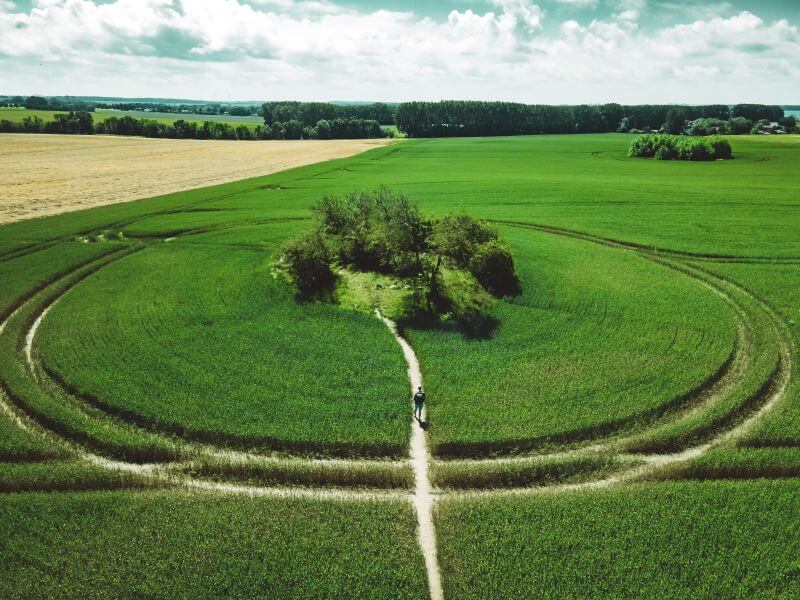
Heiligendamm
I found Heiligendamm, surrounded by beech forests, much more interesting than Kühlungsborn. This is probably due to its sophisticated spa architecture (called “Bäderarchitektur” in German) with its white buildings, which is typical of many places on the Baltic Sea. It is not for nothing that Heiligendamm is also known as “The white town by the sea“.
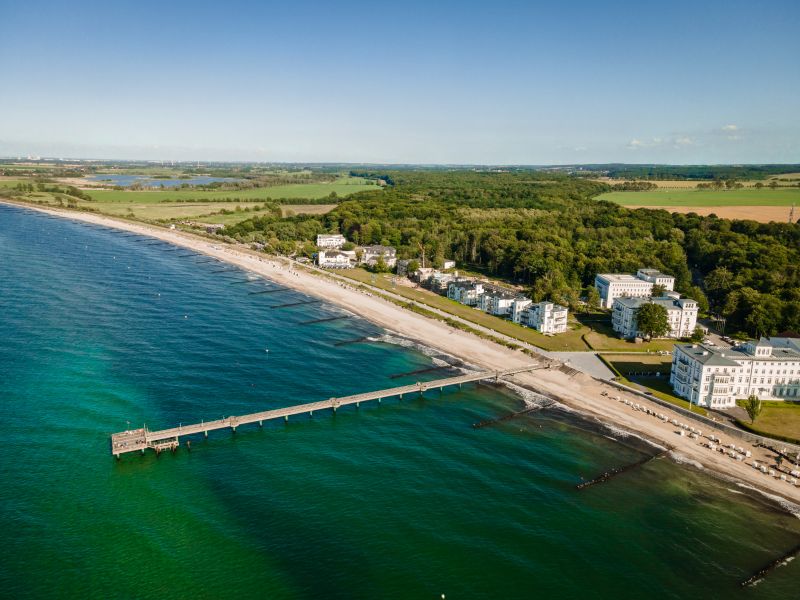
In 1793, Duke Friedrich Franz I of Mecklenburg-Schwerin chose the town as Germany’s first seaside resort after his doctor advised him to get a breath of fresh sea air and splash around in what he considered to be the healing waters of the Baltic Sea.
Heiligendamm is also known worldwide because the G8 summit was held here in 2007 at the Grand Hotel Heiligendamm. This luxury hotel uses some of the historic buildings, including the Kurhaus, and thus characterises the town.
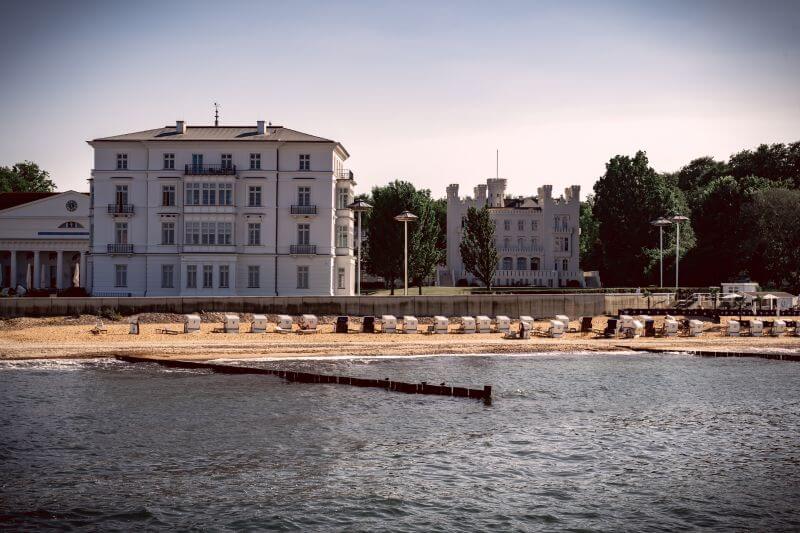
An overnight stay is not as expensive as you might think. Depending on when you book, you can sometimes even get rooms at quite affordable prices. It would definitely be a highlight.
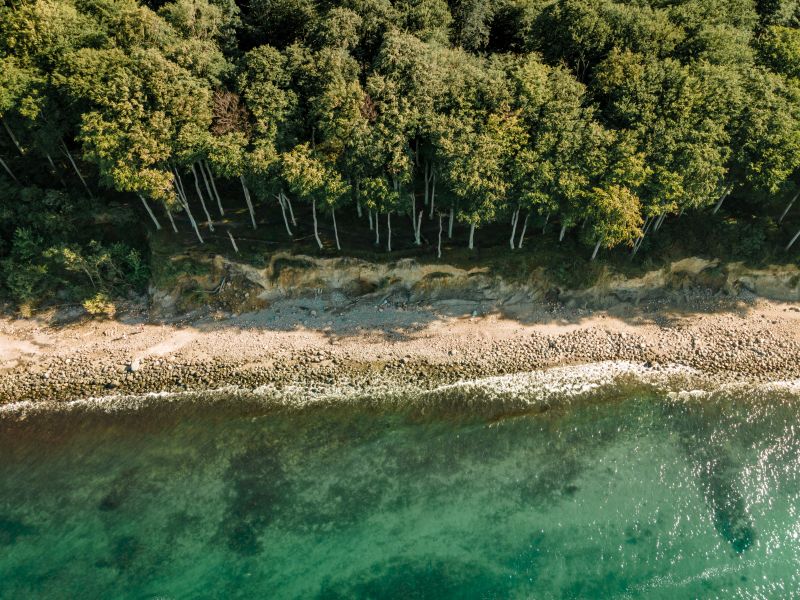
Nienhagen
A special natural attraction on the Baltic Sea is the ghost forest near Nienhagen (“Gespensterwald”). This approximately 1.5 km long and 100 m wide section of forest has a very special atmosphere that is completely different at every time of day. In the morning, the widely spaced trees with their bare trunks look almost ghostly.
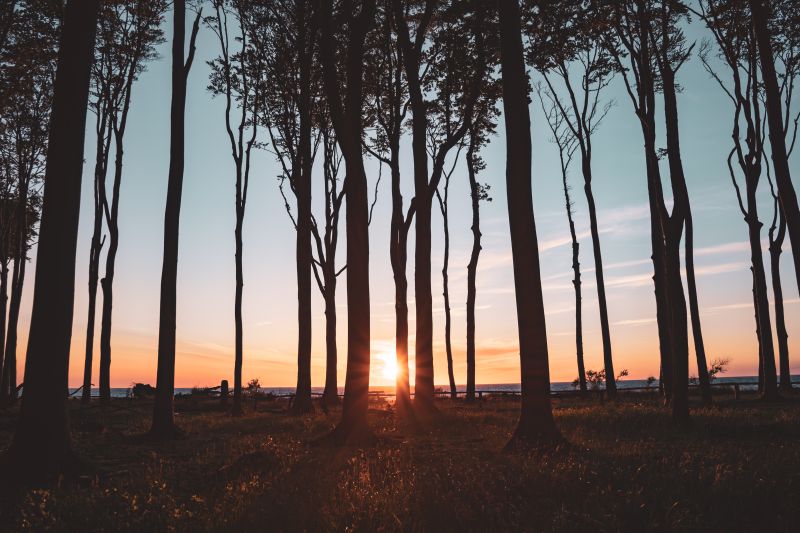
In the evening, on the other hand, when the sun melts into the horizon, the trees cast long shadows and the forest visitors set up their hammocks, it is really warm and cosy.
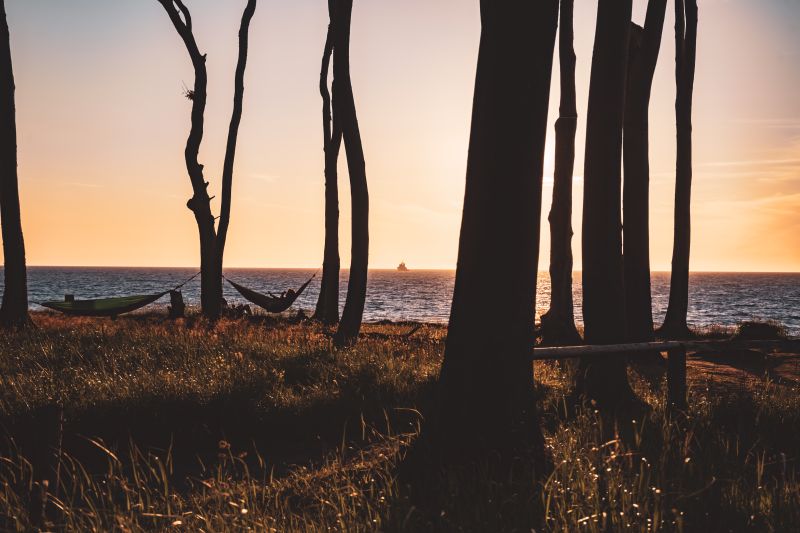
You should go here at different times of day. Even in rain and fog or in winter, a visit is a must (or precisely because of this).
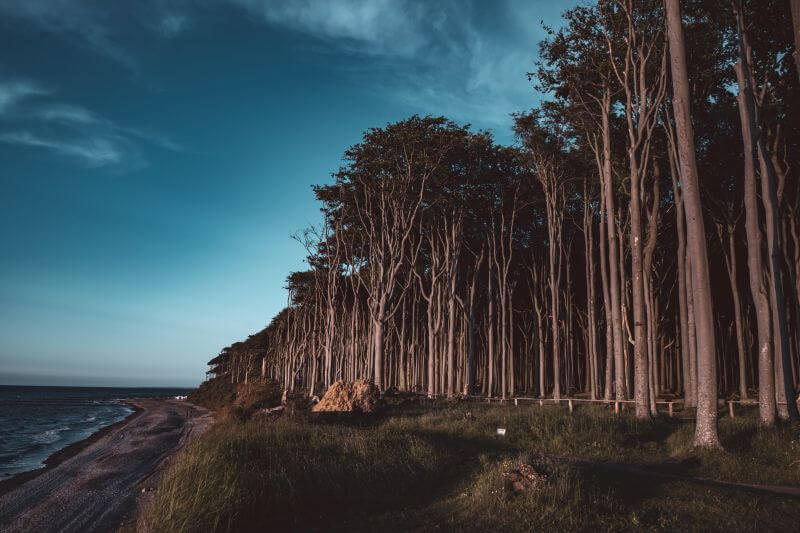
Nienhagen is also a great little seaside resort. You can either stay overnight directly in Nienhagen, or like me at Hotel Ostseeland, a little further east near Diedrichshagen. I particularly liked the great gardens here, where you can also enjoy your breakfast in the morning. The hotel is also not far from the beach.
Bad Doberan
Bad Doberan is best known for its imposing monastery, the Bad Doberan Minster. It is considered one of the most important brick Gothic buildings. The medieval interior of the monastery is of high international standing and you can see it all for yourself for just €5 admission.
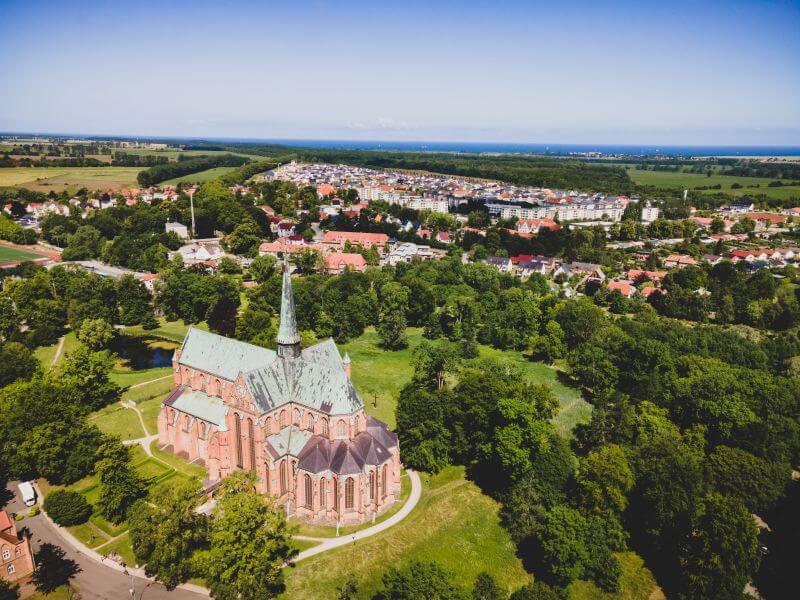
In addition, the monastery is surrounded by a great park, where there are also many other historic buildings to explore.
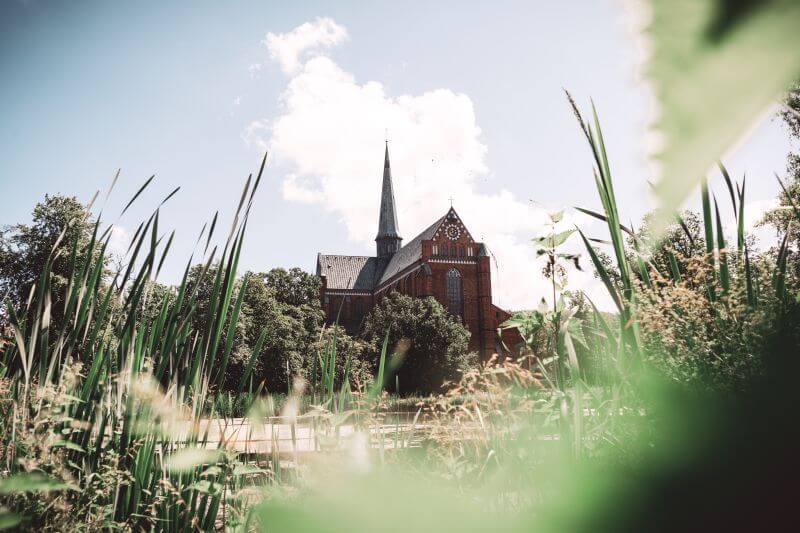
Another highlight in Bad Doberan is the Molli steam locomotive, which runs from here via Heiligendamm to KĂĽhlungsborn and back again.
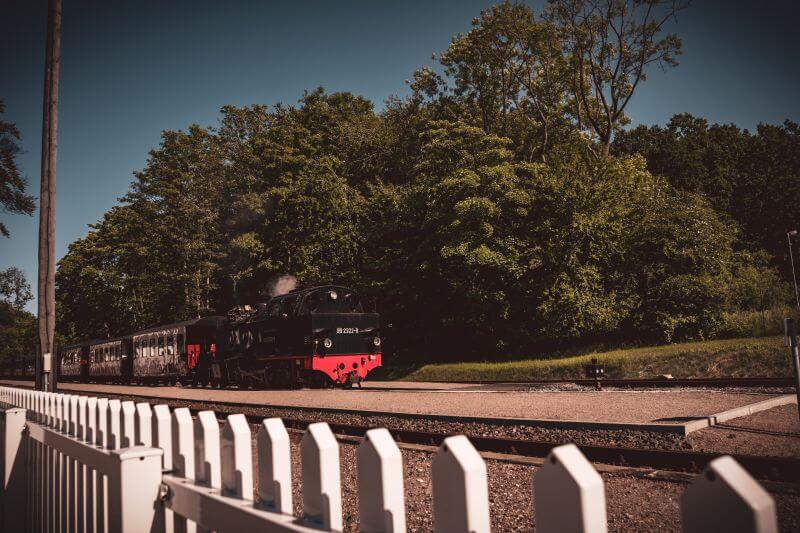
Graal-MĂĽritz
The town of Graal-Müritz is a good idea, especially in May when the rhododendrons are in bloom. That’s when the Rhododendron Park right by the sea is ablaze with colour with over 2,500 plants. The park is accessible free of charge and is also home to a concert pavilion.
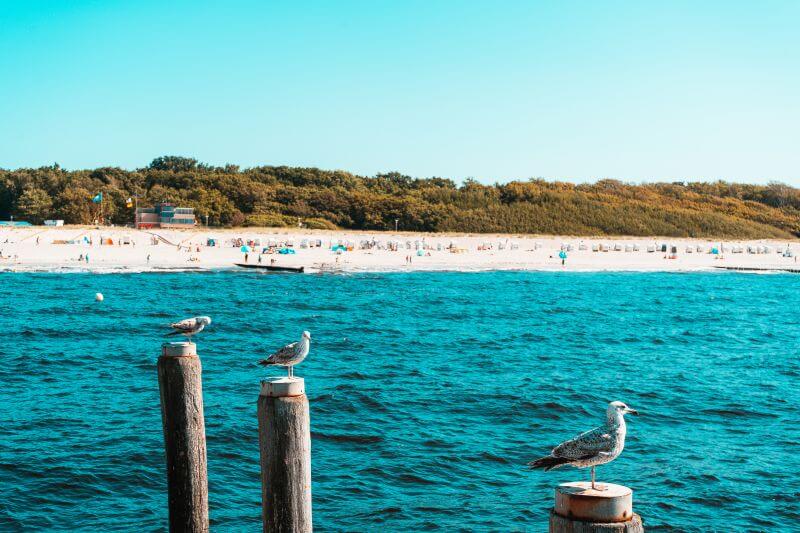
Graal-MĂĽritz is also a popular holiday resort with an eternally long sandy beach. Families with children in particular come here in summer.
Ahrenshoop
We continue on to the Fischland-Darß-Zingst peninsula. In my opinion, one of the most beautiful places here is the former artists’ colony of Ahrenshoop. It’s a refuge to slow down. You can find out everything you can do in Ahrenshoop in the following article:
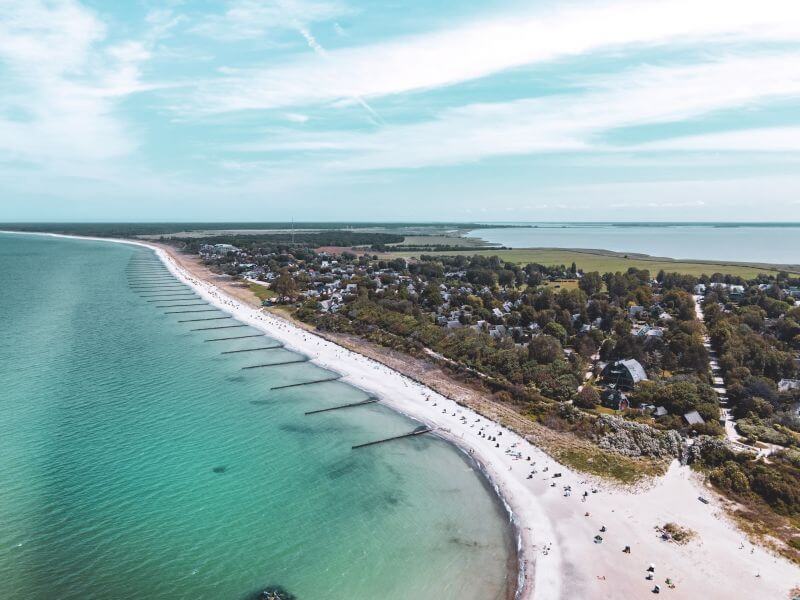
There are some great hotels in Ahrenshoop. One of the most luxurious and best is the Grand Hotel Ahrenshoop. Okay, admittedly – it’s not exactly the cheapest hotel, but you have to treat yourself sometimes. What I particularly liked here was the wellness area with the great pool, the super delicious and extensive breakfast buffet and the view from the roof terrace. The rooms are also absolutely luxurious and spacious.
You can also access some areas of the hotel without being a guest. For example, you can enjoy a cocktail on the hotel’s roof terrace at sunset if there is still enough room ;)
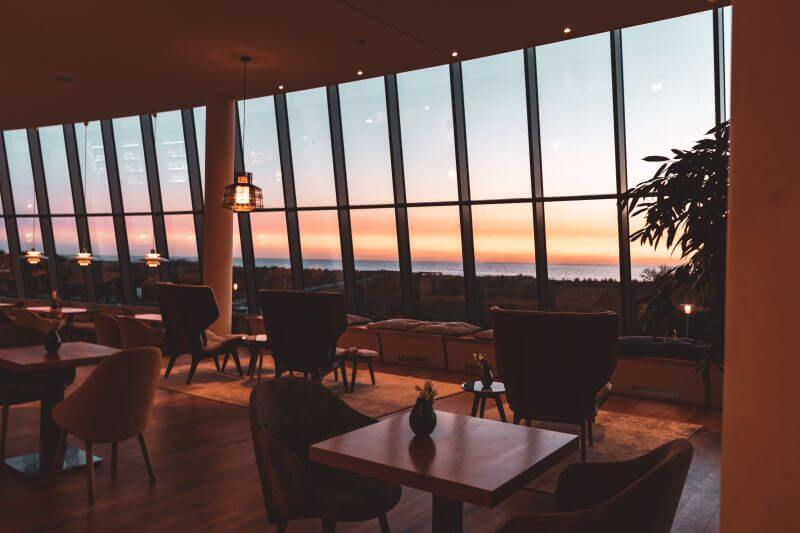
DarĂź
The Vorpommersche Boddenlandschaft National Park on the Darß is simply breathtaking. Here you can marvel at perhaps the most beautiful beach in Germany – the Weststrand am Darß.
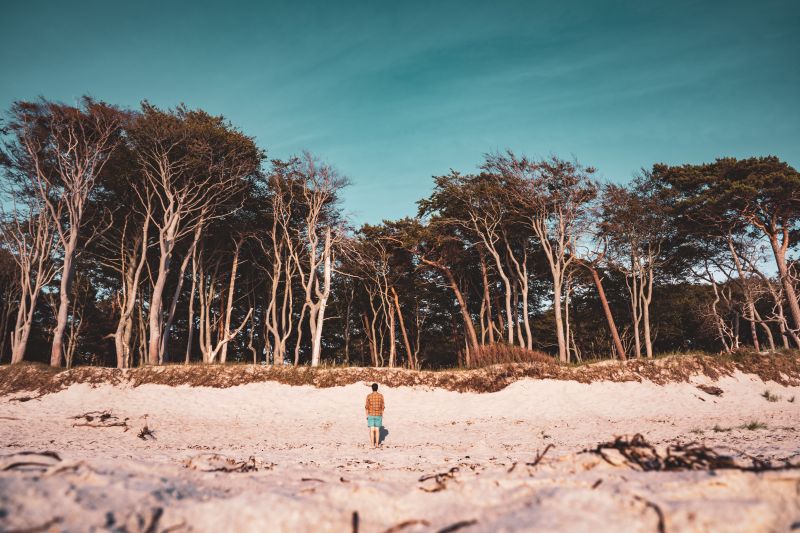
West Beach reminds me a little of the beaches in northern New Zealand – kilometres long, not quite as easy to reach and still largely unspoilt. When it storms here, the trees lie on the beach just as they fell. It is also not permitted to go into the dunes.
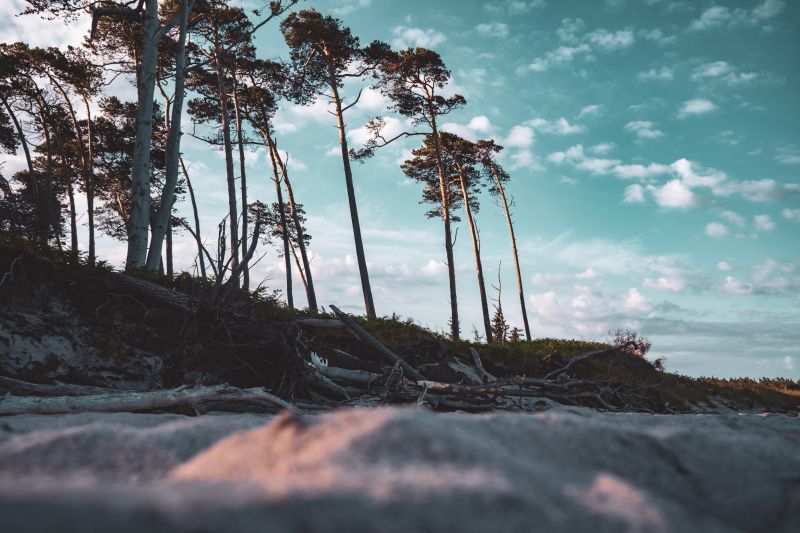
But the whole national park is also fantastic apart from the beach. For example, you can explore the DarĂź Forest and its moors by bike, watch birds at the DarĂź harbour at the northern end of the north beach or climb the DarĂź lighthouse and visit the adjacent Natureum.
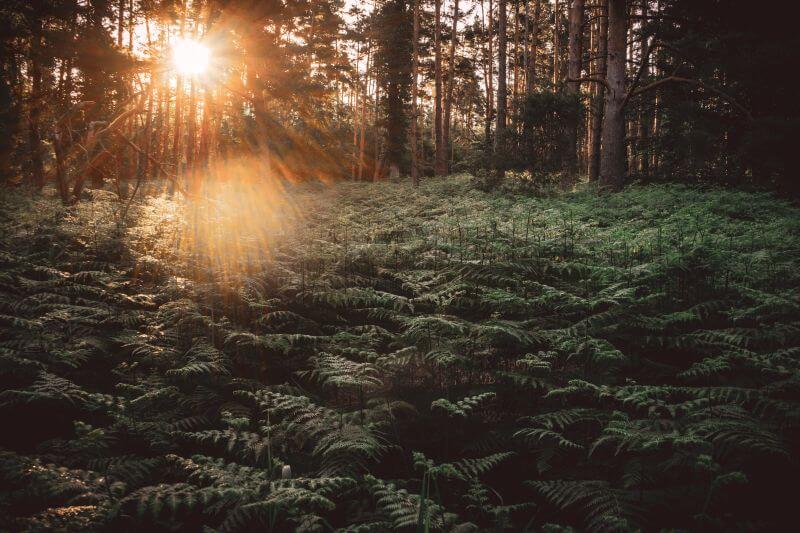
Important: Visit the national park, but take your rubbish and preferably also that of others back with you.
Rainbow Camp Prerow
The rainbow camp near Prerow is one of the most popular on the Baltic Sea for a reason. You can spend the night here in the forest or in the middle of the dunes in a campervan or tent.
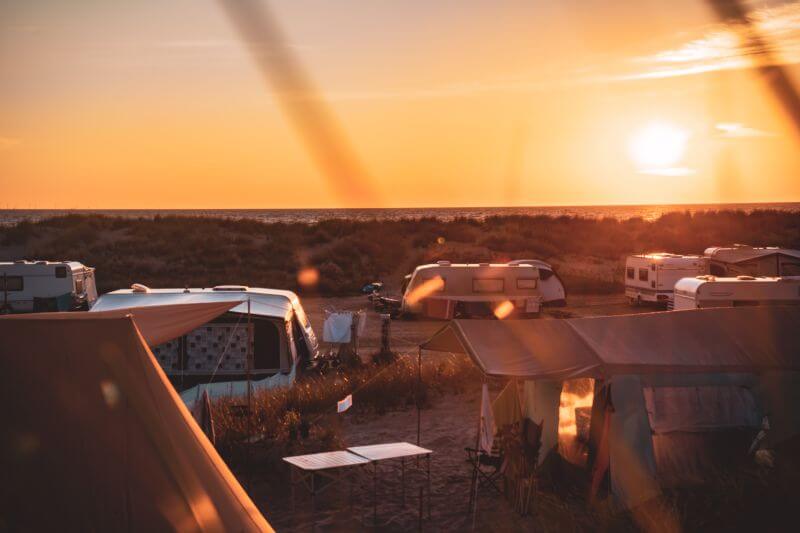
It is important to reserve your place in good time. But sometimes you can also get a pitch here spontaneously.
Bernstein Museum
If the weather is bad and you can’t look for amber on the beach, which the Baltic Sea is famous for, just pay a visit to the German Amber Museum in Ribnitz-Damgarten.
Here you can learn all about the gold of the sea and also marvel at some special amber exhibits, such as works of art made of amber or natural amber with insects inside. As the museum is located in a monastery, you can also learn a lot about it. There are also changing special exhibitions in the museum.
Admission costs €10 per adult.
RĂĽgen
Further on to Germany’s largest island – Rügen. There is so much to see and experience on Rügen that I had to write an extra article about it:
All this is enough to fill 2 weeks. For this Baltic Sea itinerary, however, you only have 2-3 days to explore Rügen. That’s why you should choose a few highlights of these Rügen sights beforehand.
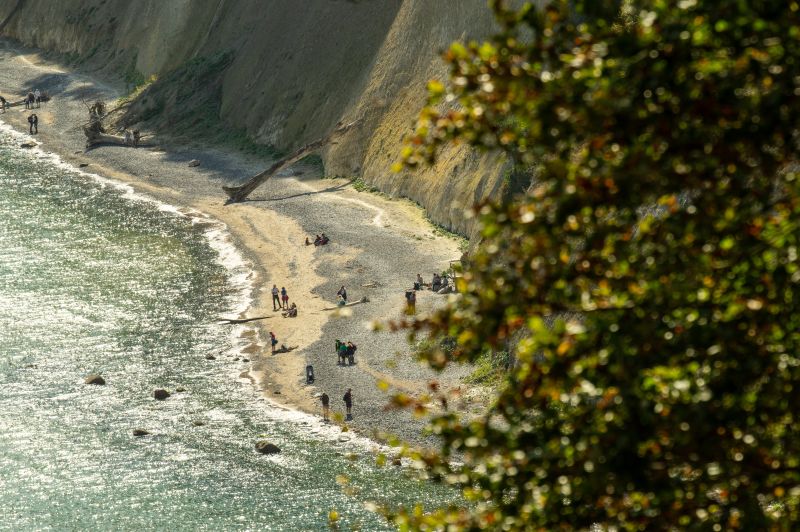
I definitely recommend a hike along the cliffs in Jasmund National Park and a visit to the photogenic pier in Sellin.
Greifswald
The next stop on the Baltic Sea route is the Hanseatic city of Greifswald. This town was never really on my radar before, but it really surprised me during my visit. There is a great market square here with lots of historic buildings, overlooked by the magnificent St Nicholas Cathedral and one of the most famous German painters comes from Greifswald – Caspar David Friedrich.
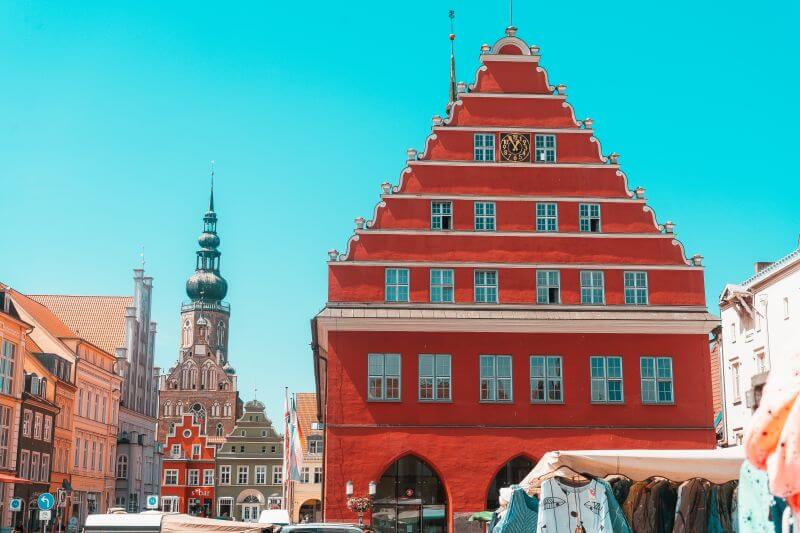
In his birthplace, you can learn about the history of the building and the life of Caspar David Friedrich for €4.50. “The Wanderer above the Sea of Fog” is probably his most famous painting. The special thing about his drawings was that he mostly created them from his imagination. For example, he also drew the Watzmann mountain on Königssee without ever having been there himself.
His absolute favourite motif was the Eldena monastery ruins just outside Greifswald. You’ll pass it on your onward journey towards Usedom.
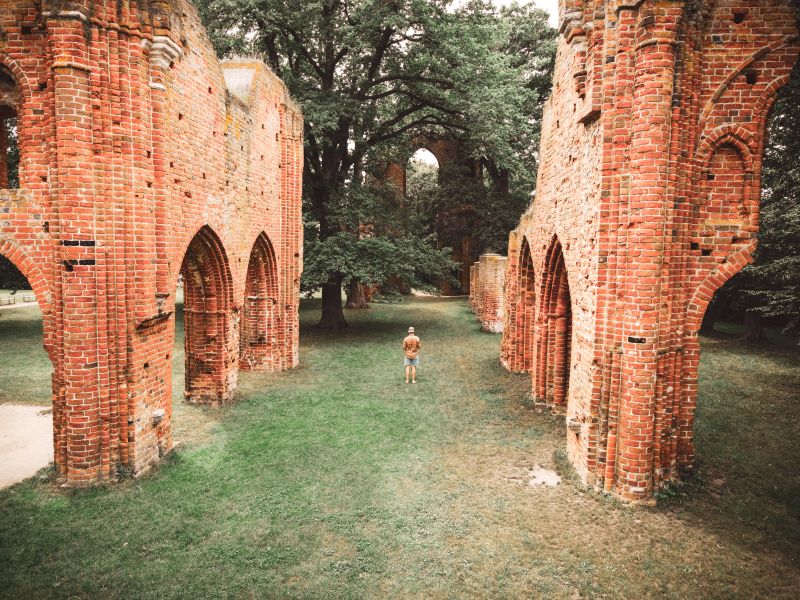
Usedom
Usedom is best known for its 3 large seaside resorts:
- Bansin
- Heringsdorf
- Ahlbeck
A lot of tourists come here every year for their holidays. Heringsdorf in particular has a number of restaurants, bars, hotels and entertainment options. It’s guaranteed not to be boring. And of course there is also the wide sandy beach and the longest pier in Germany.
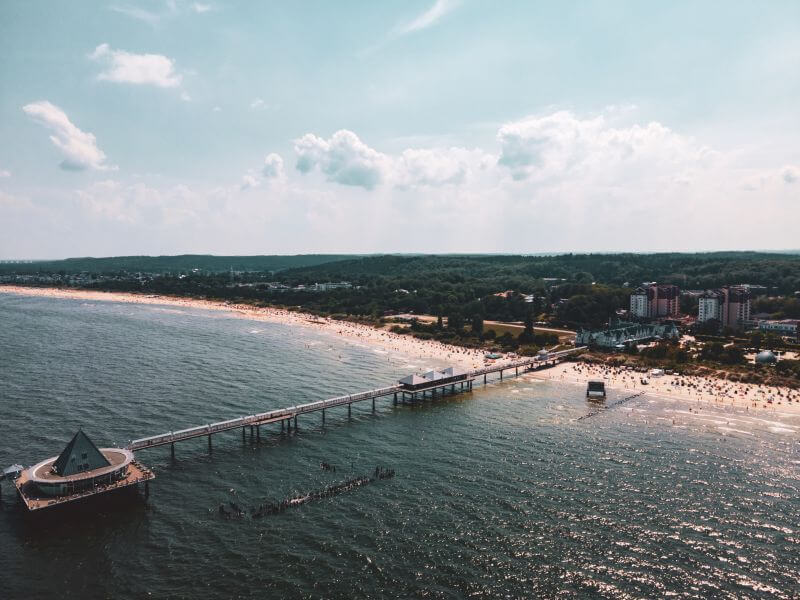
I found it particularly cool to explore the many pompous villas along the beach promenade and DellbrĂĽckstraĂźe. There were no limits to the wealth of ideas when it came to building the villas. Some of them look like they were copied from the Black Forest. Others are modelled on typical spa architecture. You can even stay overnight in some of them.
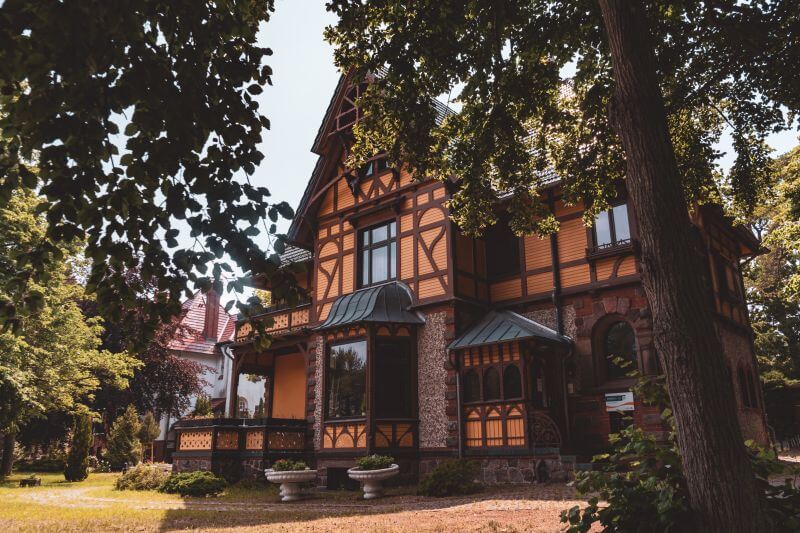
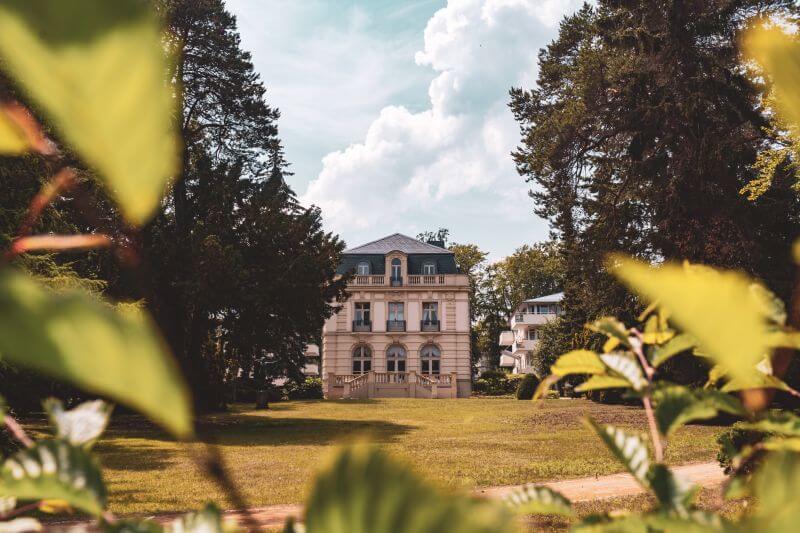
You can even hike to Ahlbeck to see the historic clock and walk on Germany’s oldest pier.
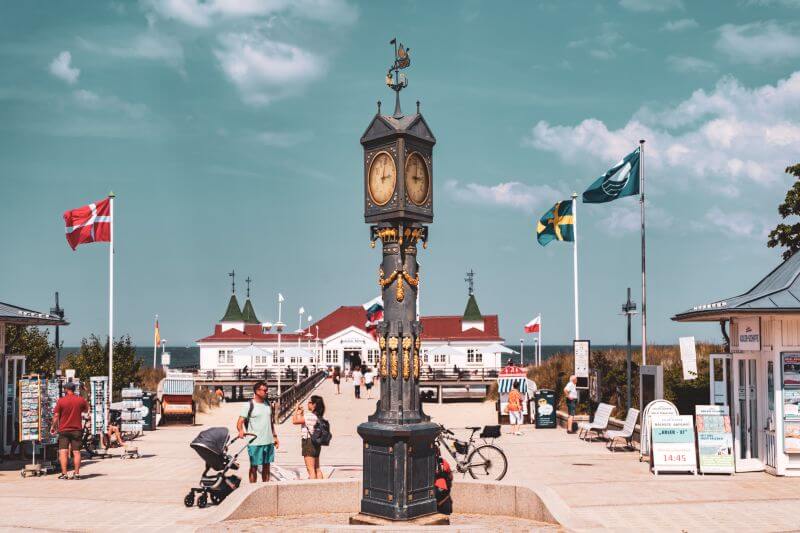
The 4 “amber spas” of Koserow, Loddin, Ückeritz and Zemperin are a little more tranquil. The historic salt huts in Koserow are well worth a visit. Here you can smell the wonderful aroma of smoked fish, which you can also buy in all sorts of varieties in the shops.
I also found the 4-star Hotel Nautic in Koserow to be super. It boasts an indoor and outdoor pool and a great restaurant.
A little further inland, the moated castle of Mellenthin is well worth a visit. It is located in the centre of the Usedom Island Nature Park, dates back to 1575 and is surrounded by an idyllic park. You can also spend the night here at Hotel Schloss Mellenthin.
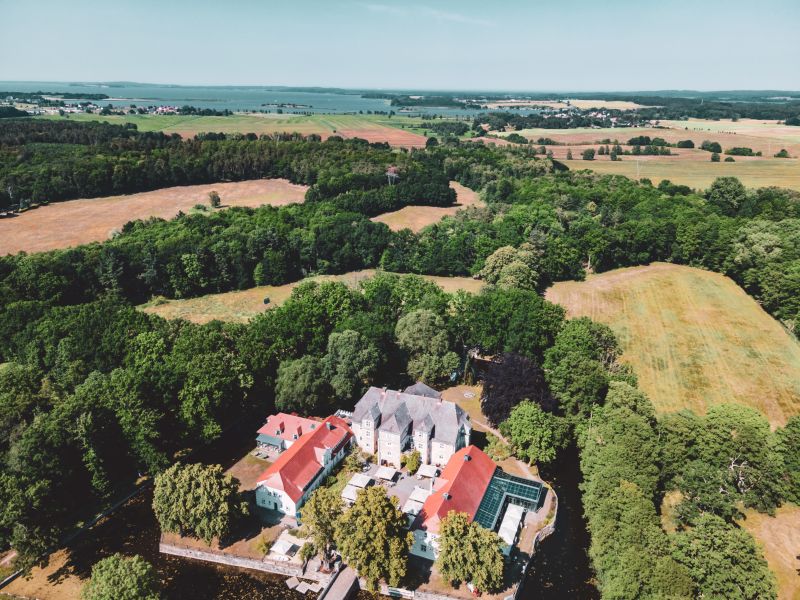
A slightly different attraction is located in the south of Usedom near Karnin. Here stands an impressive lift bridge that was once part of an old railway bridge. Today, the fragment is a technical monument.
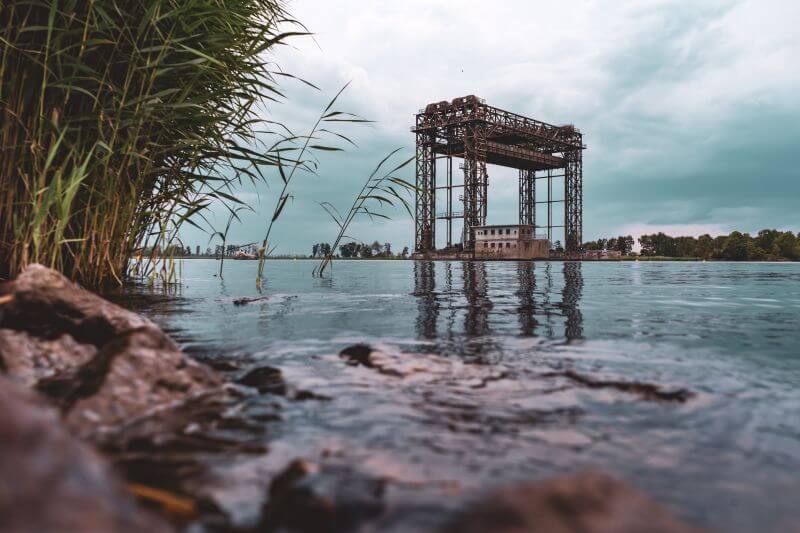
You can find some great tips on outdoor activities on Usedom at travelinspired.
Tools & services I recommend for your trip:*
📶 Flexible and affordable mobile Internet worldwide
🚁 My drone for aerial photography
🚗 Find and compare cheap rental cars
🎟 Find and book cool activities
🔒 Secure Internet connection with NordVPN
*Note: These links are affiliate links. If you book through them, I will receive a small commission without it being more expensive for you. A purchase from you via these links helps me to continue offering free content without annoying ads on this website. Thank you for your support! I really appreciate it!

